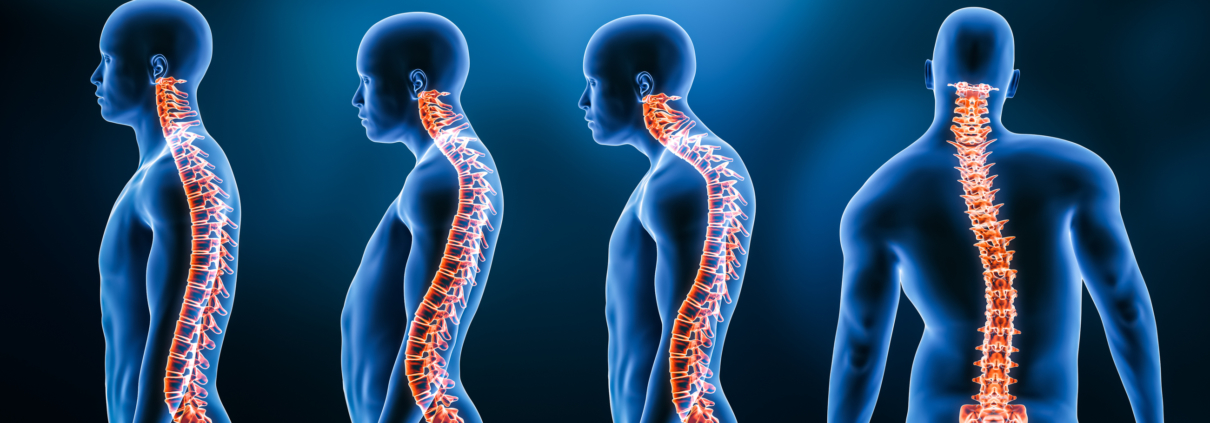How to perfect your posture: 7 points to consider every day
We’re all guilty of it. Whether it’s at home, at work or at play, our posture is something that unfortunately gets overlooked time and again.
In 2020 and 2021 we saw the rise of make-shift desks thanks to the ‘work from home’ orders imposed across the nation. We also saw a steady increase in the amount of time we spent on our sofas. Leading to detrimental impacts on our posture. And in 2022, we’re still paying the price.
“Aches, pains and referred pain can all be a result of poor posture,” Osteopath Robin Kiashek says. “I’ve had people suffer from repetitive strain injury (RSI), headaches, migraines and even neck and shoulder problems. And, most of the time, it’s because of posture problems. But that’s not to say you can’t correct these . All it takes is some awareness.”
Top tips for improving your posture
-
Be aware of tech neck
Otherwise known as the 21st century curse of resting your chin on your chest while using your phone. We’re not suggesting you ditch your smartphone (although less screentime is something we could all do with).
But while you use your phone, ensure your lower back is properly supported, sit up straight when you’re tapping away on the sofa and keep your chin up while you text.
-
Get your work set up right
Neck pain is widely associated with badly positioned screens and looking down rather than straight ahead. According to The Institute of Osteopathy, tight neck and upper back muscles, stiff joints, and trapped nerves are common effects of spending too long hunched over screens. If left untreated, this can cause splintering pains through the shoulders and hands.
So, if you’re working from home or in an office:
- Set the computer screen so that’s it at eye level
- Keep your feet flat on the floor and try not to cross your legs.
- Consider a wrist rest to keep your wrists straight and at the same level as your keyboard.
- Use a headset if you use the phone a lot, rather than clamping the phone between your ear and shoulder.
- Do some simple neck exercise through the day
-
Invest in a good mattress
It’s been calculated that, on average, we sleep for a third of our lives (hopefully). So it’s worth doing your research to hunt out a great mattress.
“I’d suggest investing in a supportive mattress and a divan bed – slats do not support your mattress let alone your back,” Robin says.
Ideally, the divan should not incorporate storage boxes as these lessen its effectiveness.
-
Sofa time? Sit up straight
Think about the shape that your spine is in as you are sitting and adjust your position accordingly.
Keep your back straight and your head held high. “This will put your spine into a ‘neutral’ position that doesn’t strain it,” Robin adds.
You may find it helps to sit in a chair that gives you better support for your spine rather than a settee. Also, sit with your feet flat on the floor and the whole of your body facing forwards, from nose to toes.
-
Take a break
Sitting at your desk is all well and good for getting your to-do list ticked off. However, your body is not designed to sit in one position for long periods.
Give it a rest by standing up and walking around for a few minutes, at least once an hour. Maybe get yourself a glass of water? That way when you come back to your desk you can reset your posture.
-
Reconsider shoulder/messenger bags
They might look fashionable but carrying heavy loads in shoulder and/or messenger bags can cause an imbalance of weight on your spine. Robin explains: “If you lug around weighty items, like laptops and books, as a minimum, opt for a comfortable rucksack and be sure to use both shoulder straps. But ideally, do consider a rucksack with wheels.”
-
Consider active or dynamic sitting
If you spend most of your day at a desk, we’ve written before about the benefits of Active or Dynamic Sitting.
This is where your seating allows or encourages you to move, increases your stability and strengthens your core abdominal muscles. It’s a win win.
“There are lots of options on the market including the ‘Swopper Chair’, which I use myself,” Robin says.
If you are suffering pain or discomfort and you would like further information on how Robin may help you, or you would like to book an Osteopathy appointment get in touch.





Leave a Reply
Want to join the discussion?Feel free to contribute!